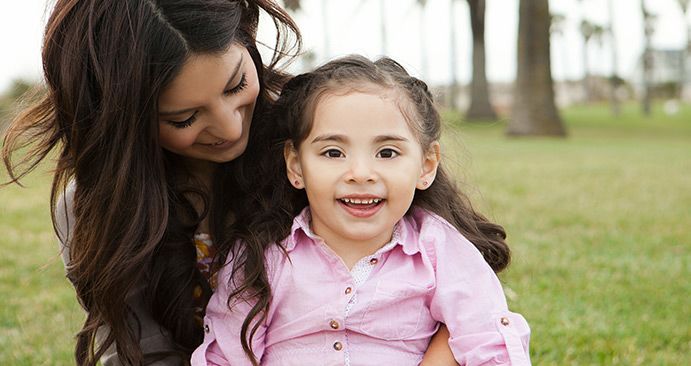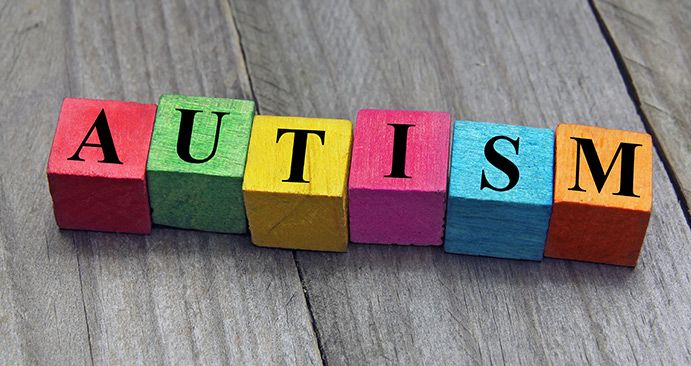A ‘Child with Autism’ vs. ‘Autistic Child’: Here’s Why it Matters
Updated on March 11, 2024In the autism community, one of the most fiercely debated topics is how to refer to people on the spectrum. While some prefer the term ‘people with autism’, others lean towards ‘autistic person’. Then there are those who remain in different, and prefer to take a tomato [tomayto]; tomato [tomahto] view of things. When a post in our Facebook group sparked fervent discussion, we realized this isn’t a simple matter of semantics. We felt it was important to get to the bottom of this because there’s no denying the power of words. More than simply conveying meaning, words convey sentiment and ultimately shape how people are perceived.

As a parent and someone whose life has been impacted by autism, you’re likely to have your own thoughts on the topic. The way you refer to your child, as either a child with autism or an autistic child, says something about how you see your child’s condition.
Unpacking the term a ‘child with autism’
At AngelSense we made a decision from the get go to stick with the term a ‘child with autism’. This was partly influenced by the preferences of moms that use AngelSense, but also because of how we perceive autism. For us, and many others who prefer this term, autism is not something which defines our special children. This is the same thinking that would be applied when describing someone with any other illness or disability. A good example is when referring to a cancer sufferer, you’d say ‘someone with cancer’. This acknowledges that the person is more than their illness, and places emphasis on the fact that first and foremost they’re a person.

The well known autism blogger Autism Daddy had this to say on why he tends to use the terminology ‘child with autism’: “Anyway, the same way you say “she has cancer” I say “Kyle has autism”. It doesn’t define him as a person, it’s just something that he has and he has to live with and fight…the same way you fight cancer.”
Another important idea which this term conveys is that autism is merely one trait which makes up who a child is. It highlights the fact that there are many other facets and intricacies which make up a special child’s personality. Another parent blogger explains the significance of not focusing solely on your child’s autism: “I have a son with autism, twinkling green eyes, long brown hair, the cutest smile, an infectious laugh, and an apparent lifelong obsession for the freakin Wiggles. Not an autistic son.”

Unpacking the term an ‘autistic child’
The term ‘autistic child’ conveys the idea that autism is an integral and defining part of who a child is. This isn’t necessarily a negative way of describing someone, it’s simply a different way of perceiving the condition. The important distinction is that a term like ‘autistic’ implies that the child would be completely different if not for autism. In other words, autism makes a child who they are. Some also argue that this term is perhaps more reflective of reality as unlike an illness, autism will always be part of who this child is. And in that way, autism does make special children who they are.
Alex Lowery wrote a compelling piece in which he explains why he identifies more closely with the term autistic: “Personally, I don’t see anything offensive about the term “autistic.” I use it quite frequently to describe others and myself on the spectrum… Why is it considered offensive to say someone is autistic? And why is it better to say that they “have” autism? To me, that kind of implies that autism is an illness that needs to be cured — which it isn’t.”
Like Lowery, some people on the spectrum find the term ‘people with autism’ offensive because they perceive autism as a part of who they are. Unlike an illness, autism isn’t something someone simply ‘has’ and can recover from. Autism is a lifelong battle; an indelible part of one’s identity and the way one sees the world. And for those who perceive autism in this way, ‘autistic’ conveys these ideas clearly.
What does the research say?
Many people were surveyed – including those with the condition, family members and professionals – to get a better sense of the autism community’s preferences. The survey clearly shows that there has been a shift towards language which in some way identifies autism as an integral part of a person’s identity.

All those surveyed identified with terms like ‘on the autism spectrum’ and ‘Asperger syndrome’. However, a significant distinction can be found when it comes to terms like ‘autistic’ and ‘Aspie’. According to the survey, those with the condition prefer identity-first terminology like ‘autistic’ while family members didn’t. The survey also found that terms like ‘low functioning’ and ‘classic autism’ are strongly disliked by most people surveyed.
What can we learn from all this?
It’s important to be aware of the language used to describe autism, and to take into account the preferences of those with the condition. But perhaps the biggest takeaway is that just as perceptions about autism are continually evolving and changing so too is language. We all need to be aware of this, and to accept that there isn’t such as thing as a correct way to describe autism. It’s largely a matter of personal preference.
How do you describe your child’s autism? Share your thoughts and suggestions in the comments below.
AngelSense is committed to creating a safer world for special needs children. We designed the AngelSense GPS tracking solution to give parents the peace of mind that their child is safe at all times. Try AngelSense Today.
Get peace of mind from AngelSense, the groundbreaking AI-based assistive technology designed to enhance safety and peace of mind for individuals with special needs and their families. Our solution ensures you stay connected with your loved ones, empowering a higher level of independence while maintaining safety. Learn more about how AngelSense can make a difference for your family.


When trying to describe this article, one thing comes to mind: Eye-opener. I never considered the simple arrangement of words to mean so much. But the fact is, the article makes good sense. A child’s worth is not defined by his condition, and the condition should not surpass the child. We want to address the child’s struggles, not the disease over the child. I’d like to make a contribution to this by sharing what I found helpful for parents of child/ren with autism. http://www.autismparentingmagazine.com/autism-resources-parents/
Defining the difference is really helpful especially for those who haven’t encounter being with them. We need to approach them positively. How will you know that we are talking to a person (child) with autism?
Try AngelSense Risk Free
Session Changed
Your session has changed. Please close this tab.